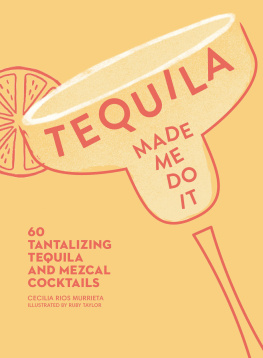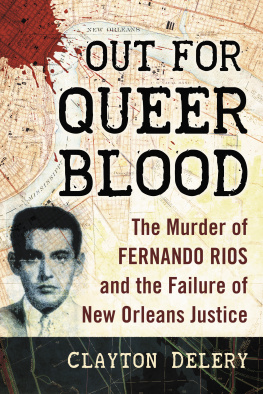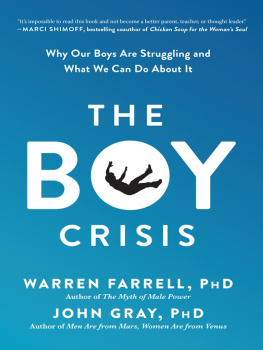Thank you for buying this ebook, published by NYU Press.
Sign up for our e-newsletters to receive information about forthcoming books, special discounts, and more!
Sign Up!
About NYU Press
A publisher of original scholarship since its founding in 1916, New York University Press Produces more than 100 new books each year, with a backlist of 3,000 titles in print. Working across the humanities and social sciences, NYU Press has award-winning lists in sociology, law, cultural and American studies, religion, American history, anthropology, politics, criminology, media and communication, literary studies, and psychology.
PUNISHED
NEW PERSPECTIVES IN CRIME, DEVIANCE, AND LAW SERIES
Edited by John Hagan
Clean Streets:
Controlling Crime, Maintaining Order, and Building Community Activism
Patrick J. Carr
Gender and Crime: Patterns in Victimization and Offending
Edited by Karen Heimer and Candace Kruttschnitt
The Many Colors of Crime:
Inequalities of Race, Ethnicity, and Crime in America
Edited by Ruth D. Peterson, Lauren J. Krivo, and John Hagan
Immigration and Crime: Race, Ethnicity, and Violence
Edited by Ramiro Martinez Jr. and Abel Valenzuela Jr.
Judging Juveniles: Prosecuting Adolescents in Adult and Juvenile Courts
Aaron Kupchik
The Technology of Policing:
Crime Mapping, Information Technology, and
the Rationality of Crime Control
Peter K. Manning
Getting Played:
African American Girls, Urban Inequality, and Gendered Violence
Jody Miller
Punished: Policing the Lives of Black and Latino Boys
Victor M. Rios
PUNISHED
Policing the Lives of
Black and Latino Boys
Victor M. Rios

NEW YORK UNIVERSITY PRESS
New York and London
www.nyupress.org
2011 by New York University
All rights reserved
References to Internet websites (URLs) were accurate at the time of writing. Neither the author nor New York University Press is responsible for URLs that may have expired or changed since the manuscript was prepared.
Library of Congress Cataloging-in-Publication Data
Rios, Victor M.
Punished : policing the lives of Black and Latino boys / Victor M. Rios.
p. cm. (New perspectives in crime, deviance, and law series)
Includes bibliographical references and index.
ISBN 9780814776377 (alk. paper) ISBN 9780814776384
(pbk. : alk. paper) ISBN 9780814777114 (e-book)
1. PunishmentCaliforniaOakland. 2. African American
boysCaliforniaOaklandSocial conditions. 3. Hispanic American
boysCaliforniaOaklandSocial conditions. I. Title.
HV7254.A7O25 2011
364.6083510979466dc22 2010053655
New York University Press books are printed on acid-free paper, and their binding materials are chosen for strength and durability. We strive to use environmentally responsible suppliers and materials to the greatest extent possible in publishing our books.
Manufactured in the United States of America
c 10 9 8 7 6 5 4 3 2 1
p 10 9 8 7 6 5 4 3 2 1
PREFACE
A word of caution: our stories are not just for entertainment.
Leslie Marmon Silko, Ceremony, 1977
You know nothing, and worse than nothing, about the working class. Your sociology is as vicious and worthless as is your method of thinking.
Ernest Everhard in Jack Londons The Iron Heel, 1907
An old, rusty refrigerator had been knocked over on the side of Pelons garage. It was white and dented on the edges and looked like it had not been used in a decade. Its metal cooling rods faced the open sky. A twenty-four case of Corona beer filled with empty bottles sat on top of the rods. We had tagged the refrigerator at the height of our delinquent careers; finely scrawled on the side in black marker were nicknames for sixty-eight of our homies.that by the time we reached our early twenties, none of the homies had avoided incarceration.
Most of us who were not currently locked up still fared miserably: seven murdered, six permanently injured from bullet woundsone had been blinded, two paralyzed from the waist down, and three with permanent scars and debilitating injuriesand about a dozen were severe drug addicts, some of whom begged for money on the streets. From our estimate, out of sixty-eight homies, only two of us graduated from high school, and only I had made it to college. About a dozen had managed to evade major tragedies and, by the standards of the inner city, had become successful. Pelon had started a family and worked as a laborer for a moving company making twelve dollars an hour. He was the most stable homeboy I kept in touch with.
As we sat in front of Pelons old garage with splintering green paint chips scattered on the ground, we reminisced about back in the day when we first met Smiley. We were about fourteen years old and had just recently joined the gang. Smiley was a naive kid our age who was physically abused by his parents. They often kicked him out of his house and onto the streets as a punishment for questioning them or telling them about his teachers treating him negatively. We called him Smiley because no matter how bad his circumstances werehomeless, victimized, or hungryhe always kept a radiant grin on his face. But his smile got him in trouble. When we gave him the nickname, he told us he thought it was appropriate because he remembered always smiling in class, and the teacher always thought he was laughing at her. When he didnt understand what was going on in class, he would smile, and when the teacher yelled at him, he would smile. I remember one time when we were hanging out on one of our gangs street corners, on International Boulevard, rival gang members drove by shooting at us, and, as I turned to tell him to run, I could see he was looking at them with a big smile.
Smiley was an innocent kid who I felt was growing up in the wrong place at the wrong time. Smiley told us stories that from a young age his teachers treated him punitively. He was seen as a problem kid in school and spent many of his school days in the detention room. On the street, police often stopped him as he walked home from school, even before he joined the gang, because from their perspective the baggy clothes he wore marked him as a gang member. I was there many times when this happened. I had already joined the gang, but Smiley was not involved. Yet police treated him like the rest of us. He was followed around, constantly searched, handcuffed, and harassed. Over time, I noticed Smiley increasingly turn to the gang because he believed it was his only source of support.
I joined the gang seeking the protection that I thought police and other authority figures in my community had failed to provide. Smiley, like many other homies, wanted to join for similar reasons. When he was fourteen, we offered to jump him into the gang: a group beating that was the standard initiation ritual. He agreed, and that same night we took him to the side of Pelons garage, where, next to the abandoned white refrigerator, a group of about eight of us punched him in the face, slammed him to the ground, and kicked him in the stomach. One of the homies grabbed a tall umbrella and hit him with it until the umbrellas aluminum structure collapsed and the fabric ripped off. After a few minutes we picked him up, gave him hugs, and handed him an 8 ball, a forty-ounce bottle of Old English Malt Liquor. He was officially one of us, part of our familia, our street family.
Eventually, Smiley and I became best friends. We took care of each other. One day, when his parents permanently kicked him out of the house, I told him not to worry. Im going to find you a house, I said. That night, I stole a 1980s Oldsmobile Cutlass Supreme, breaking the steering column with a large, heavy-duty flat-head screwdriver to gain access to the ignition rod. I drove it to our neighborhood, walked up to Smiley, handed him a screwdriver, and told him, Heres your new two-bedroom apartment. Referring to the front and rear bench seats, I joked, Ill sleep in the front room, and you sleep in the back room.
Next page




